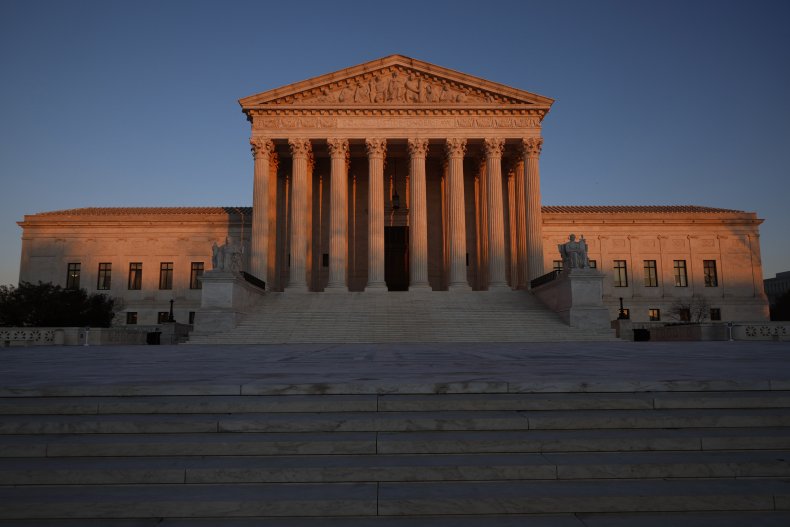As a government shutdown looms with several House Republicans holding up numerous appropriation bills, one area of government that should stay relatively unscathed is the judiciary, specifically the U.S. Supreme Court.
An array of hardline conservatives is standing strong against spending bills and threatening to put the White House’s request for a short-term continuing resolution (CR) on ice. Without a CR to keep government funding at current levels and to avoid a partial shutdown on October 1, many Americans would instantly feel the economic effects of a structurally insecure system.
It could also hamper courts’ ability to operate as usual, depending on the length of a potential shutdown. A short-term shutdown would likely have no effect on former President Donald Trump and his federal trial associated with alleged election interference associated with the January 6, 2021, Capitol riot.
“Generally, the courts would be considered essential services and would continue to operate even in the event of a federal government shutdown,” Anne Lofaso, law professor at West Virginia University, told Newsweek via email. “Moreover, a federal government shutdown would have no effect on state cases.”

Chip Somodevilla/Getty Images
The courts should be able to continue normal operations for at least a couple of weeks by relying on court fees and other funding that doesn’t come from Congress, Sonja West, a law professor at the University of Georgia, told Newsweek via email.
But an extended shutdown would require the courts, she said, “to pare down their services to only those functions that are considered essential or critical to their mission,” which equates to pausing services aside from those that fulfill constitutionally mandated duties.
‘Rights apply equally to everybody’
There’s also the question of how the U.S. Supreme Court would continue its business. Legal scholars told Newsweek that it would likely mimic past actions, in which it continued to conduct business as usual during government shutdowns in 1995 and 2013.
During the 2013 shutdown that lasted from October 1 to 17, the court heard oral argument in 11 cases, or its entire October sitting, according to SCOTUS Blog.
Aram Gavoor, a law professor at George Washington University who specializes in federal courts and constitutional law, told Newsweek via phone that the Supreme Court is different from the entire federal court system because it is the only court that is constitutionally identified.
“I would have absolutely no doubt that the Supreme Court would continue operations during a possible prospective shutdown, with the potential exception being if it was a really long shutdown,” Gavoor said. “Then, you might have some differing characteristics arising.”
Craig Trocino, a law professor at the University of Miami, told Newsweek that the entire federal court system is contemplated in the U.S. Constitution. Congress can add lower courts and personnel and so forth, and even change the number of justices in the U.S. Supreme Court, but it can’t eliminate them.
The vast majority of the Bill of Rights deals with the rights of criminal defendants and the power of the government over those criminal defendants that they seek to prosecute, he added.
“All those rights need to be honored no matter whether the government shuts down or not,” he said. “You can’t have a functioning democracy and a functioning court system within a functioning democracy that can shut down at the whim of Congress financially and thereby violate other portions of the Constitution.”
He expects constitutional rights to continue to be safeguarded whether or not a shutdown occurs.
“Those rights apply equally to everybody, no matter what,” Trocino said. “They should scrupulously apply to the average Joe. Sometimes they aren’t.
“So, the fact that people are looking at the criminal justice system more now that didn’t really look at it before because Mr. Trump is being charged, I would hope that maybe they can understand that everybody needs to be treated in exactly the same way and no one should have special preference, regardless of their station in life.”
This post was originally published on this site be sure to check out more of their content.






